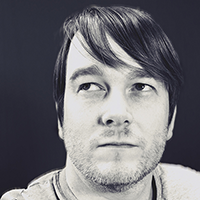The truth makes us lie

At times we find ourselves pulling our hair out because someone will double down being wrong even in the face of irrefutable evidence. Why is this? More importantly, do we do this?
In the book Black Box Thinking by Matthew Syed, he explores why pilots are more open to admitting their own failures than in other fields, such as medicine, politics or police.
The answer comes down to a very simple premise. Our brain is trying to protect ourselves by making us believe the lie.
An airplane carries a black box that aims to answer the question: What went wrong? This is in the event of a devastating crash and where there are no survivors. When new learning happens, processes are fixed and widely shared across the industry. After all, if you're a pilot, your life's on the line. You have a vested interest in paying attention.
But now apply this to other professions such as surgeons, politicians and criminal investigators. Your life isn't on the line—but your profession is. It actually goes deeper than that. Your conscience is on the line. If you screw up, admitting that you failed can have devastating effects on your self esteem.
Our brain is a fascinating organ. At it's very simplest, it's an organ that can hallucinate reality based on the inputs from our senses. I chose those words very carefully. It can hallucinate our reality. It's not an accurate representation of reality, but an interpretation.
This means that events are encoded as memories, along with our feeling towards it. Two things can happen here. Firstly, our memories can change over time and even imaginary situations can be recalled as though they are memories. Secondly, our brain can protect ourselves from believing certain 'truths' and will create justifications to make it more convincing.
So when a surgeon denies any wrongdoing on the operating table, their brain is unable to entertain the idea that they were the cause of failure. They will justify this by seeking any other—often unprovable—idea of what caused it.
When a criminal prosecutor wrongly imprisons an innocent person, they will still believe they are right even if new DNA evidence proves their innocence. Even if this means the real criminal is out there. The idea of being wrong is too much to bear. So their brain will invent a belief that they are right.
But what about us? Are we ready to admit our failings and face the truth? Or do we allow our brain to invent ways to protect ourselves. What would happen if we did admit we were wrong? Could we handle that?
I don't seek to answer these questions, but shine a light on the very behaviour we see play out on the world's stage. We're quick to judge, and slow to back down. We argue believing evidence will change someone's mind. It rarely will.
The real truth is to admit this is a symptom of humanity. So rather than allow frustration to get in the way, ask a better question. Knowing that people believe things that aren't true, how can you work with them to achieve a positive outcome?
The ah-ha moment
Today's ah-ha moment is that any one of us can be caught believing a lie because our brain is trying to protect ourselves. It also helps us have understanding why others refute evidence and double down on their beliefs. This is a fact of life. It's what you do next that is important.
This post is part of the Mindset and Mastery newsletter. Don’t miss the next issue by subscribing to get it in your inbox.
If you want to learn more about knowledge management that helps you write articles like this, then check out my Atomic Note-Taking book at https://atomicnotetaking.com/.


